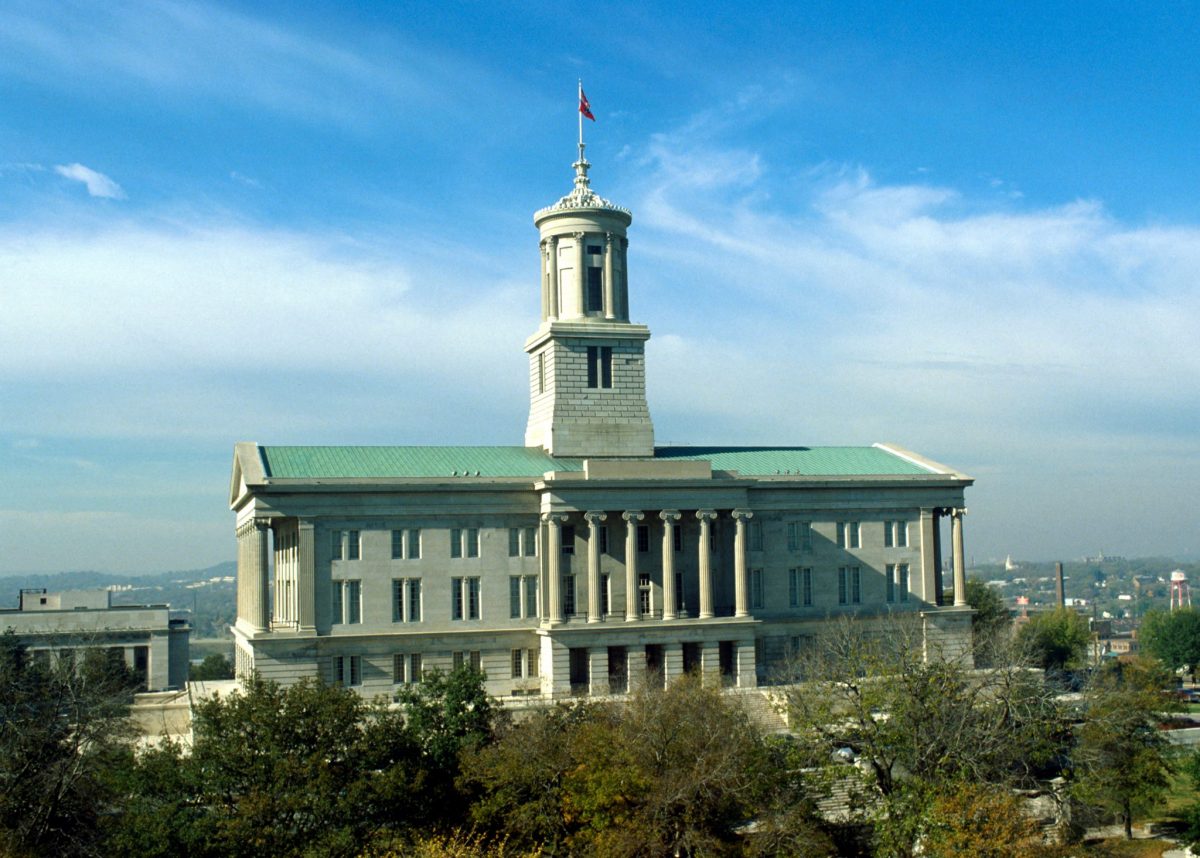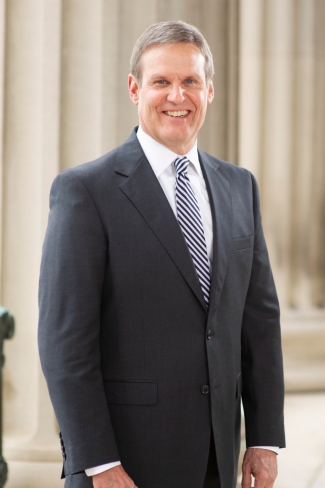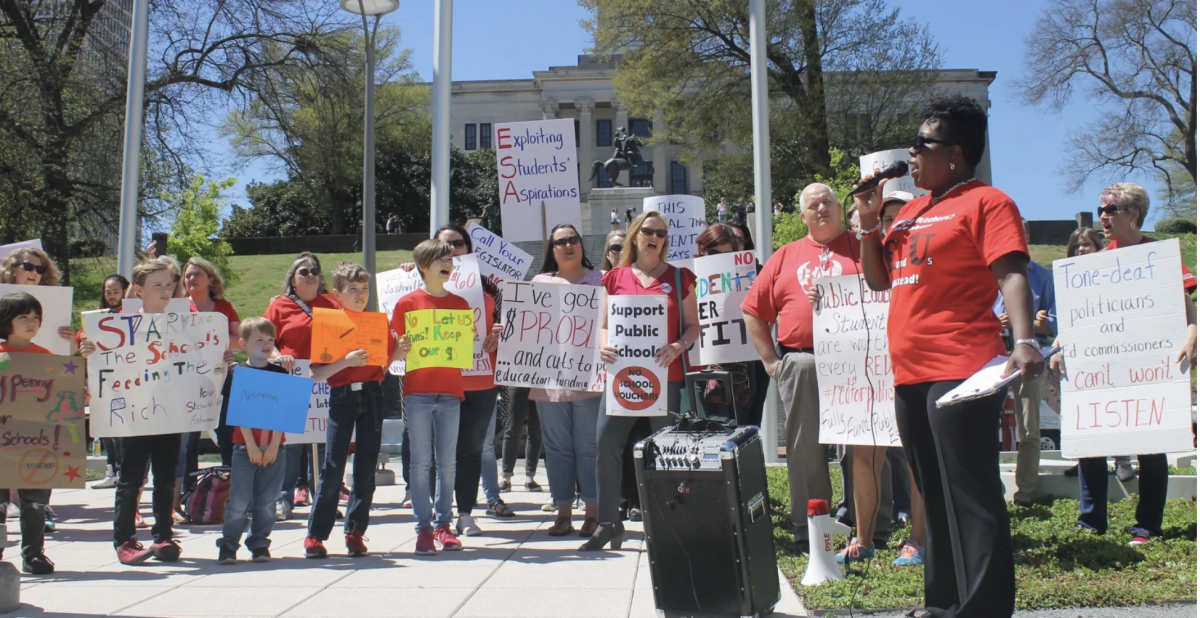An activist who fought the establishment of a mosque in Tennessee more than a decade ago has been reappointed to the state commission that reviews and recommends books and instructional materials for local school systems to adopt.
House Speaker Cameron Sexton on Tuesday reappointed Laurie Cardoza-Moore to the Tennessee Textbook and Instructional Materials Quality Commission for a three-year term that ends on June 30, 2025.
The extension of her tenure on the panel, following her controversial 2021 appointment to a one-year term, comes as a new law gives the commission authority to overrule local school board decisions and ban certain school library books statewide.
The commission is scheduled to meet on Thursday to discuss its new responsibilities, as well as its review of math textbooks recommended by publishers.
Meanwhile, two national reports released last weekend found that attempts to ban books from U.S. school libraries are on the rise again this year, after reaching a historic high last year.
While most of the panel’s 10 commissioners are licensed educators, Cardoza-Moore is not. With an associate degree from the KD Conservatory College of Film and Dramatic Arts in Dallas, she is one of three members chosen by the governor and two legislative speakers — all Republicans — to represent parents and citizens.
She homeschooled her five children, who are now grown, and in 2005 founded Proclaiming Justice to the Nations, a Franklin, Tenn.-based organization that claims to fight anti-Semitism.
After supporters of President Donald Trump stormed the U.S. Capitol on Jan. 6, 2021, she falsely blamed Antifa, referring to the loose affiliation of anti-fascist activists who have been labeled “terrorists” by Republicans. In 2020, her group was named an anti-Muslim “hate group” by the Southern Poverty Law Center.
In a brief telephone interview with Chalkbeat on Wednesday, Cardoza-Moore denied that she is anti-Muslim and said she has been objective in her review of textbooks and instructional materials in her role on the commission.
“Curriculum has to comply with state [academic] standards,” she said. “I look to make sure that it’s accurate and unbiased and reflects the values of Tennesseans.”
Her reappointment requires a confirmation vote by state lawmakers when they reconvene in January. In 2021, the Republican-controlled legislature voted to approve her appointment along party lines.
Cardoza-Moore’s first term ended June 30 while she was running for the GOP nomination to represent her Williamson County district in the Tennessee House of Representatives. Her narrow defeat in August by Jake McCalmon made her reappointment possible, said Doug Kufner, a spokesman for Sexton.
In his letter to Cardoza-Moore on Tuesday, Sexton said her new term begins immediately.
“I am confident that you will perform the duties of office with the high standard of professionalism, dedication, and integrity that the citizens of Tennessee deserve and expect of their public servants,” the speaker wrote.
Cardoza-Moore came to notoriety in 2010, when she opposed plans to build a mosque in Murfreesboro, south of Nashville.
During her confirmation hearings last year, Democratic Sen. Raumesh Akbari, of Memphis, asked about her comments at that time saying the mosque was being built to serve as a terrorist training camp.
Cardoza-Moore responded that there “absolutely” were terrorists in the group, but Akbari said law enforcement found no proof of her claims.
She testified that she has worked to fight classroom content that she described as historically inaccurate and biased. But she declined to answer questions about her beliefs around teaching students about the nation’s history of colonialism and slavery, since her work on the commission during her initial term would focus on materials for math, based on the state’s textbook adoption cycle.
The scope of the commission’s work will soon widen.
In 2023, the state is to begin reviewing science, fine arts, and wellness books. In 2024, the adoption cycle calls for a review of materials in social studies and world languages. And under a new state law, the panel can start having a say on school library content, based on appeals of local school board decisions over challenged books.
Several who opposed Cardoza-Moore’s appointment last year say their opinions haven’t changed.
Akbari, who chairs the Senate Democratic caucus, said Wednesday that Cardoza-Moore is “unqualified” to serve on a panel that has “an important role in our children’s education.”
Leaders of the nation’s largest Muslim civil rights and advocacy organization said her reappointment is a distraction from students’ education.
“Laurie Cardoza-Moore, a conspiracy theorist whose anti-Muslim rhetoric has endangered Tennessee families, has no business serving on any government commission, especially one that can influence what students read in their textbooks,” said Edward Ahmed Mitchell, national deputy director of the Council on American-Islamic Relations.
You can learn more about the commission on the state’s website.
Marta W. Aldrich is a senior correspondent and covers the statehouse for Chalkbeat Tennessee. Contact her at maldrich@chalkbeat.org.
Chalkbeat is a nonprofit news site covering educational change in public schools.









